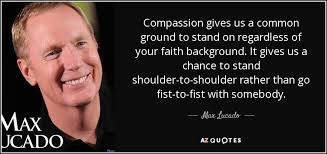My, the lessons we can learn from this remarkable time in political history from a certain Donald John Trump, Sr., and Bernard “no middle initial” Sanders.
This tip of this political iceberg can start with the notion of common ground. Both the Donald and the Bernie have tapped into values that already exist, not that which Madison Avenue has to concoct like the Super Bowl commercial that showed three dogs hiding under a trench coat to buy Doritos. Not that there’s anything wrong with that, as Jerry Seinfeld would say.
Donald Trump has created common ground by creating a common enemy – Washington insiders with perceived failed promises. In 2004 Barack Obama created common ground by proclaiming “the audacity of hope.” Ronald Reagan created common ground in 1980 by asking, “Are You Better Off than You Were Four Years Ago?”
Our format’s shared values run two thousand years deeper than any other format, and yet I find stations frequently miss the opportunity for common ground by defaulting to the smallest possible audience – those who are already fans of the Christian music industry.
If the answer to your quiz is “Building429”, guess who will participate? Those who know and love Building429. If you talk about a Christian music industry cruise, guess who’s interested? Those who are already fans of the Christian music industry.
BREAKING NEWS: Most of your listeners can’t name their five favorite songs, much less name the individual members of Hercules and the Chicken Fat People. (It’s what the songs mean to them that matters, but that’s a Frost Advisory for another week).
“Where you consistently begin and what you consistently assume determine who consistently shows up. Why? Because your assumptions create the common ground for the journey.”
– Andy Stanley

This just in: We’re just a couple of weeks away from Frost Advisory #300 (a milestone unimaginable to my 5th grade English teacher and the guys in the fantasy baseball league) and the world premier of my first video! Yikes! That’s a tease, don’tcha know!



